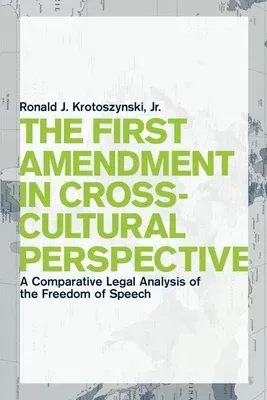Ronald J Krotoszynski Jr
(Author)The First Amendment in Cross-Cultural Perspective: A Comparative Legal Analysis of the Freedom of SpeechPaperback, 1 March 2009

Qty
1
Turbo
Ships in 2 - 3 days
In Stock
Free Delivery
Cash on Delivery
15 Days
Free Returns
Secure Checkout

Part of Series
Critical America
Part of Series
Critical America (New York University Paperback)
Print Length
336 pages
Language
English
Publisher
New York University Press
Date Published
1 Mar 2009
ISBN-10
0814748252
ISBN-13
9780814748251
Description
Product Details
Author:
Book Format:
Paperback
Country of Origin:
US
Date Published:
1 March 2009
Dimensions:
22.61 x
14.99 x
2.29 cm
Genre:
Multicultural
ISBN-10:
0814748252
ISBN-13:
9780814748251
Language:
English
Location:
New York
Pages:
336
Publisher:
Weight:
430.91 gm